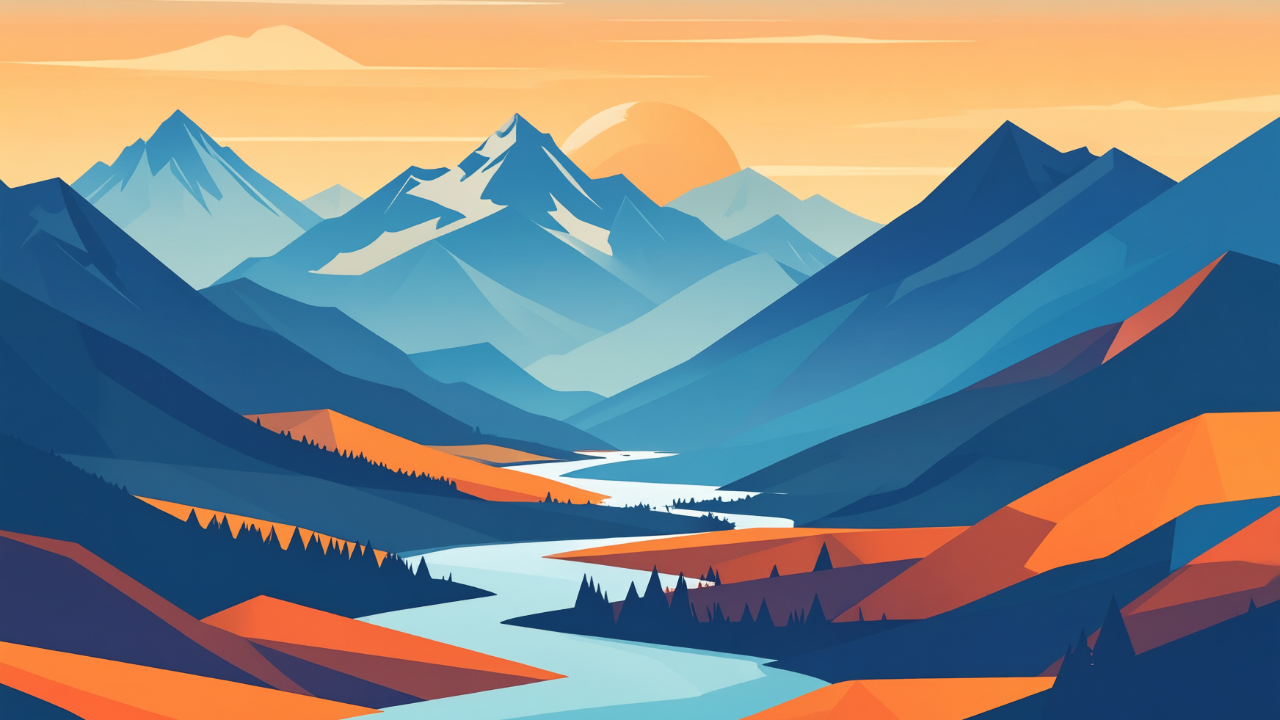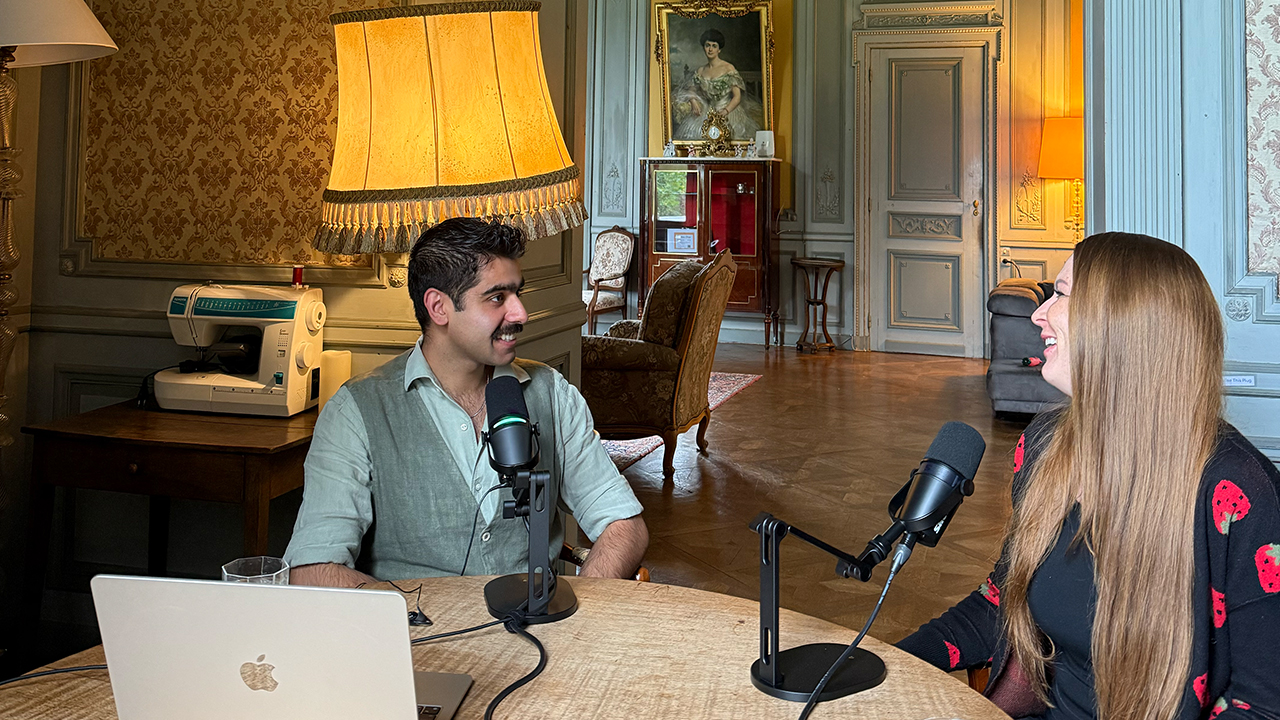
Less Attachment, More Freedom: Redefining Success as a Digital Nomad
Jan 29, 2026Mathilde and I sat down in a co-living chateau in Normandy, where she told me about leaving Switzerland with no clients, no business plan, and no experience in freelancing. Today, she runs a thriving virtual HR consultancy serving Swiss companies from anywhere in the world.
The Escape Plan
Mathilde Andersen didn't ease into digital nomadism. She dove in.
After spending three years backpacking around the world until COVID hit, she returned to Switzerland and faced a reality many travellers know too well: the job waiting for her felt suffocating.
"I really didn't like the job I had. So I needed an escape, and the best way to escape was to turn my profession into something I could make money off and to travel the world."
The problem? She had absolutely no idea how to do it.
"Before COVID, I was just backpacking, living off my savings. I didn't have any idea about being self-employed, about freelancing, about marketing, about anything. Absolutely no idea."
What followed was a complete leap into the unknown, what Mathilde describes as "opening a Pandora box." Where should she register her company? What about residency? Insurance? Client acquisition? Website setup? Positioning?
"I just went all in. Step by step, I just got there. I actually manifested it. I saw myself living this life and I thought whatever it takes, I'm going to get there."
Starting Without a Safety Net
Most people transitioning to remote work do it cautiously: negotiating remote arrangements, building a client base on the side, testing the waters before jumping in fully.
Mathilde did none of that.
She left Switzerland before securing a single client. Her reasoning was strategic, even if it felt reckless: "If I really want to get into that digital nomad life, I have to get there where the people are." Switzerland's high cost of living meant few digital nomads stayed there. She needed to be where the community was.
Her first stops: Spain, then quickly to Brazil.
The First Invoice: Making HR Work Remotely
Mathilde's breakthrough came from an unexpected approach. She didn't wait for the perfect HR freelancing opportunity. Instead, she started by offering administrative services.
Her first client came from scanning remote job postings on LinkedIn. When she found a company looking for administrative support, she sent them a proposal: "I can do that, but as a freelancer."
It worked.
"I explained why they should collaborate with me and why my services or the way I operate is beneficial for them." The pitch was simple: no employee costs, no office overhead, just a clear hourly rate or project fee.
That first invoice was transformative. "Wow, I'm actually getting paid. This is actually working."
The answer to making HR work remotely: she followed the market shift.
"COVID sort of shifted how some companies work. Small businesses especially didn't want the overhead of a full-time HR employee. I have a set price as a freelancer. You just pay by hour or we agree on a package, but that's all the expense you're going to have."
From there, she expanded to her true passion: HR strategy, recruitment, talent development, and organisational consulting, all delivered virtually.
The Financial Reality of Nomadic Life
When I asked how much a digital nomad needs to earn to sustain this lifestyle, Mathilde is pragmatic.
"I think it really depends where you are. If you're in Bali or Thailand or Vietnam, the cost of living is much cheaper." Her estimate? Around €2,000 per month minimum.
In Europe, €2,000 wouldn't be enough. But in Southeast Asia, or if you're willing to house-sit or volunteer for accommodation, it's possible.
The key is flexibility. "It depends on what you spend your money on. If you cook, if you work for your rent, you can get by with €2,000."
The Emotional Side: Freedom, Loneliness, and Deep Connections
The practical challenges of digital nomadism (taxes, visas, client acquisition) are well-documented. Less discussed is the emotional landscape. When I brought this up, Mathilde was refreshingly honest about loneliness. "If I would tell you I never felt lonely, it would be a lie. I have been lonely." But she's quick to clarify: "I like to be alone. Generally, if I'm alone, I actually enjoy my me time."
For her, the freedom outweighs the isolation.
"The less I'm attached to a place or to something, the more freedom I have. If I can just travel with one suitcase and my backpack and just go wherever I want without any strings attached, that's just pure joy."
"I can go wherever I want, whenever I want, with whomever I want." She describes the spontaneity of nomadic life: seeing someone post on Instagram that they're in a nearby city and deciding to meet up the next day.
To manage the balance between social connection and solitude, Mathilde alternates between co-living spaces and Airbnbs. "I cannot only do co-livings or only Airbnbs. I like to change. That's how I keep my balance."
Co-Living: Where Deep Conversations Happen
Co-living spaces have become central to Mathilde's nomadic life. But it's not just about shared accommodation, it's about the quality of connection.
"For me, it's to share the spaces, to share your time with like-minded people. We're all here for the same purpose, but we're all so different. Maybe we would have never met in other circumstances, but we are all people from different places that live under the same roof and all just want to share experiences."
The conversations in these spaces go deeper than typical small talk. "The kind of conversations we have are so deep because we all have the same issues, the same struggles, the same experiences."
When I asked what they actually discussed, the topics ranged from finding partners while constantly travelling to the internal struggle of wanting to settle down versus the urge to keep moving. The paradox of having too many options. "You have so many options that you get lost because you don't know in which direction should I go, what should I do, where, when?"
Choosing Paraguay: Community and Connection
One of the practical questions many aspiring digital nomads face is where to establish residency. For Mathilde, the answer was Paraguay.
"I am from Switzerland, but I don't live in Switzerland anymore. I officially live in Paraguay."
The residency process was straightforward. Working with a local facilitator, she received her temporary residency in less than three months. Requirements were minimal: birth certificate, criminal record, fingerprints, and a photo.
But the decision wasn't purely logistical. "For me, it's important to feel welcome in a country and to have a connection with the locals and with the people and with the culture."
Paraguay delivered exactly that. "The people are so friendly. They're so welcoming. You walk down the street, they want to talk to you."
She's built genuine friendships there. "I don't just want to be in the digital nomad bubble. I like to have a little bit of both."
The outsourcing philosophy applies here too: "People outsource HR to me, I outsource this to someone else. Everyone should do what they do best."
Lessons from the Journey
Looking back on her transition from backpacker to business owner, Mathilde's path offers key insights:
Start before you're ready. Mathilde left Switzerland without clients, without a business plan. She figured it out as she went.
Go where the community is. Being physically present in nomad hubs provided the inspiration and connections she needed.
Be flexible about your services. Starting with admin work allowed her to build income while positioning for ideal work.
Follow market shifts. COVID created demand for remote HR services. Mathilde capitalised on that.
Balance solitude and connection. Alternating between Airbnbs and co-living spaces maintains equilibrium.
Stay open to whatever happens. Rigidity is the enemy of nomadic life.
Choose your base strategically. Tax residency matters, but so does feeling genuinely welcomed.
The Freedom to Choose
Today, Mathilde runs her virtual HR consultancy from wherever she wants, currently splitting time between Europe and Latin America, with Brazil as her favourite destination.
As our conversation drew to a close, it became clear she's built exactly the life she envisioned when she decided to escape that job in Switzerland: the freedom to go wherever she wants, whenever she wants, with whomever she wants, while doing work she genuinely loves.
"The less I'm attached to a place or to something, the more freedom I have."
For Mathilde, that freedom isn't just about geography. It's about building a life on her own terms, one invoice at a time.
Connect with Mathilde Andersen
Website: mathildeandersen.com
LinkedIn: linkedin.com/in/mathilde-andersen-virtualhr

Take some time to read some of Ibi's other blogs



